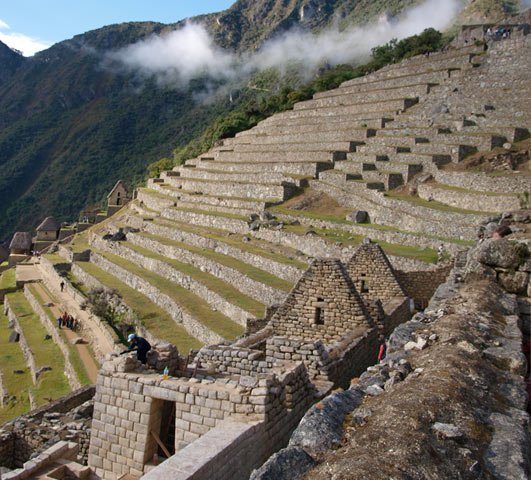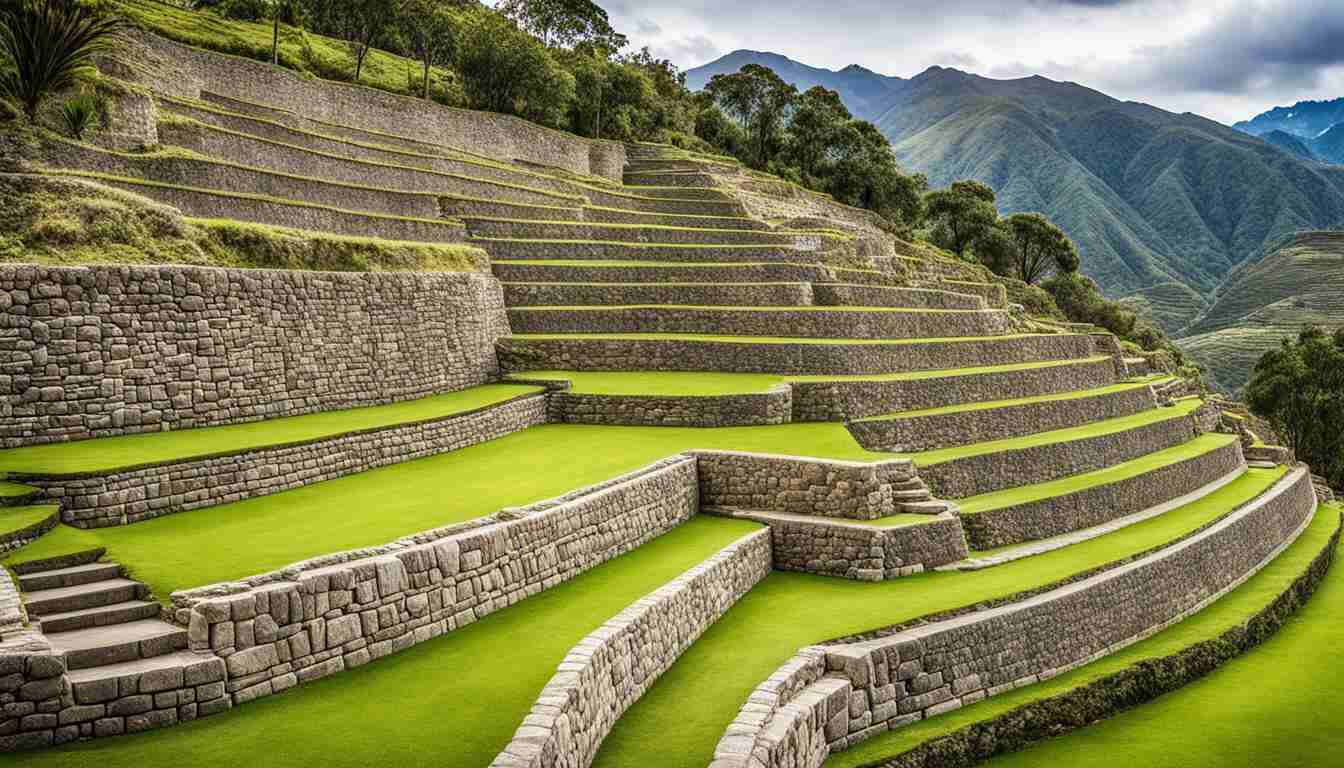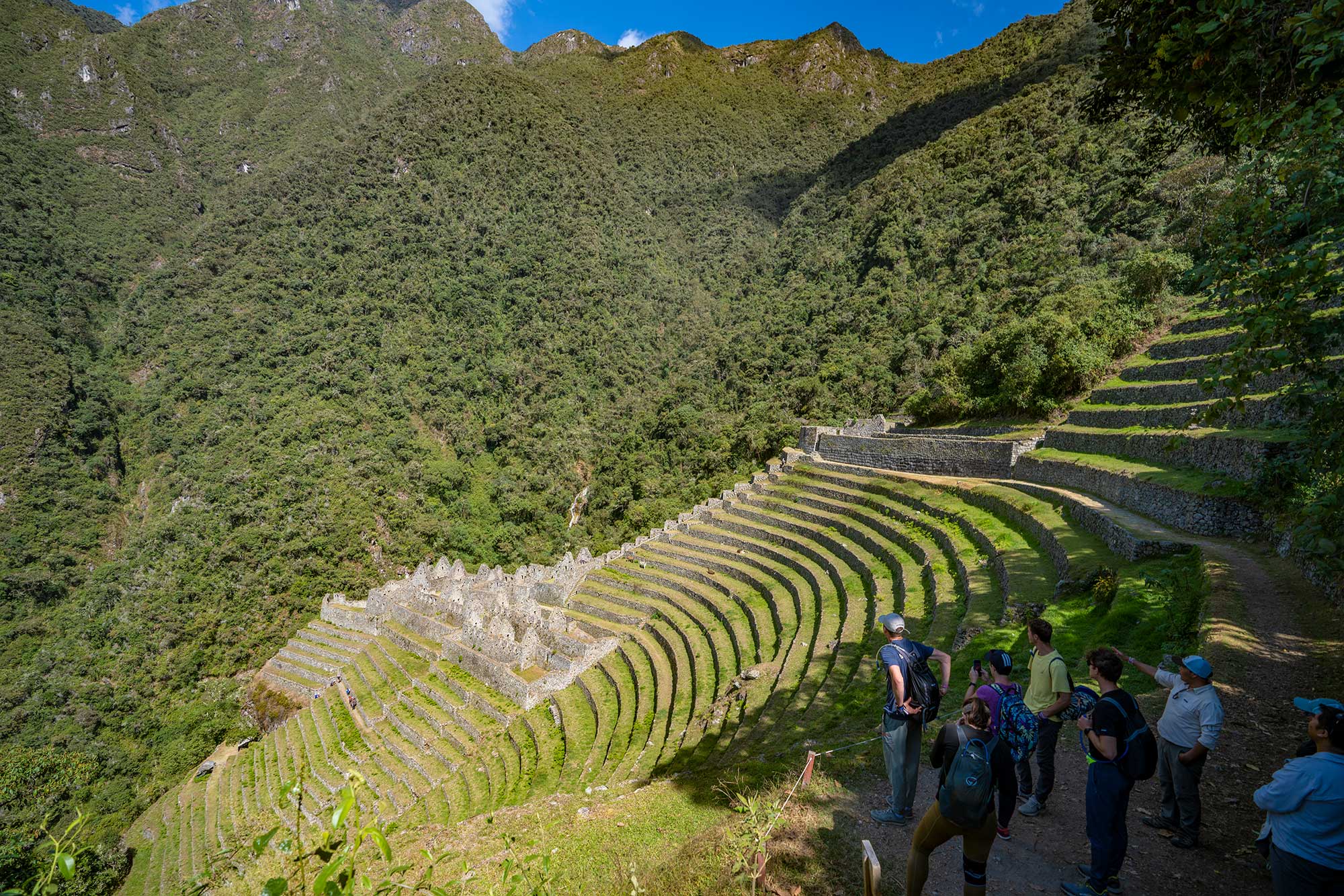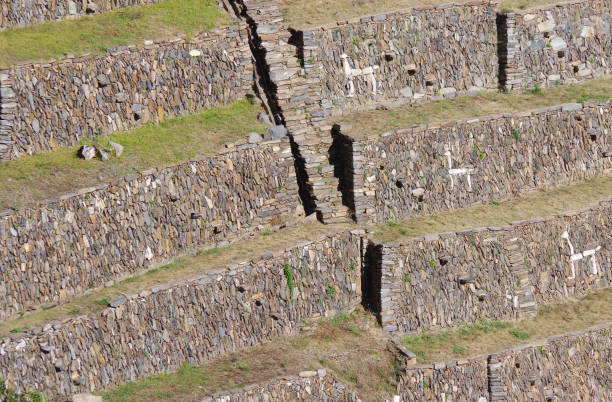Located high in the Peruvian Andes at 3,050 meters (10,000 feet) above sea level, the terraces of Choquequirao offer a powerful glimpse into the agricultural brilliance of the Inca civilization. Often referred to as the “sister city” of Machu Picchu, Choquequirao is a remote site that showcases the Incas’ advanced knowledge of sustainable farming, urban planning, and mountain engineering.
Advanced Agricultural Design
The terraces of Choquequirao were meticulously designed to maximize agricultural productivity in a challenging environment. Built on steep mountainsides, these agricultural platforms made it possible to cultivate crops like maize, potatoes, and quinoa in high-altitude conditions. The Incas implemented a sophisticated irrigation system to channel water from nearby glaciers, preventing soil erosion and ensuring consistent crop production. This innovation allowed them to sustain a large population, adapting to the harsh Andean terrain.

Architectural Significance and Cultural Context
Choquequirao’s terraces are part of a larger complex that reflects the Incas’ architectural expertise. The site is divided into several sectors, including residential, ceremonial, and storage areas, demonstrating the Incas’ ability to plan and organize spaces for both agricultural and administrative purposes. The site’s strategic location and layout suggest it served as an important religious or administrative center, possibly linked to the broader Inca Empire’s network.

A Remote, Majestic Location
The remote location of Choquequirao adds to its allure. Unlike Machu Picchu, which is easily accessible to tourists, Choquequirao requires a multi-day trek through rugged terrain. This isolation has helped preserve the site’s authenticity, offering visitors a rare opportunity to experience Inca history away from the crowds. The breathtaking views of the surrounding mountains and valleys further enhance the sense of discovery that comes with exploring this hidden Inca treasure.

Preservation and Future Access
As interest in Choquequirao grows, efforts are underway to make the site more accessible, including a proposed cable car system. However, this development poses challenges for preserving the integrity of the site. Balancing tourism with conservation will be key to maintaining Choquequirao as a cultural and historical treasure.

Conclusion
Choquequirao’s terraces stand as a remarkable achievement in Inca engineering, offering a window into the advanced agricultural techniques that allowed the civilization to thrive in the Andean highlands. The site’s architectural and agricultural innovations continue to shed light on the Incas’ resourcefulness, making Choquequirao an essential part of their legacy and an invaluable archaeological site for future generations.

